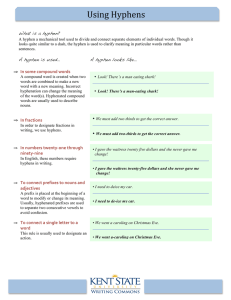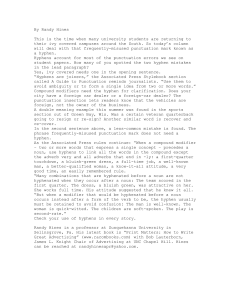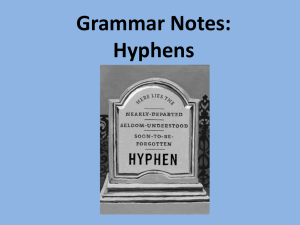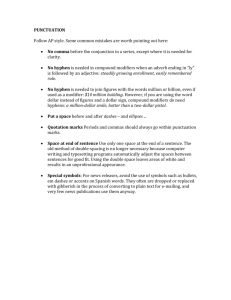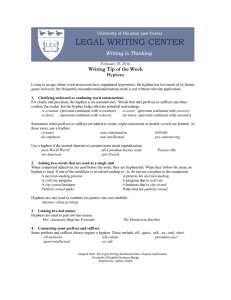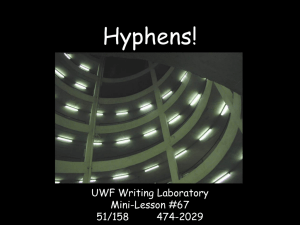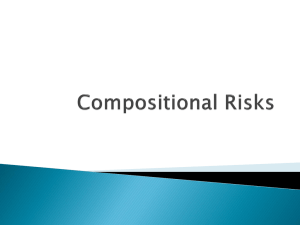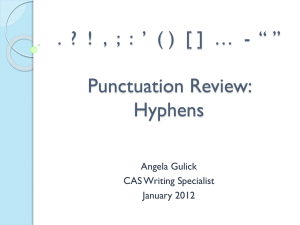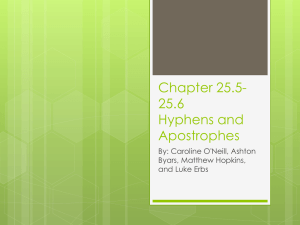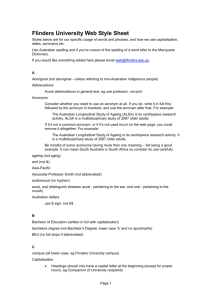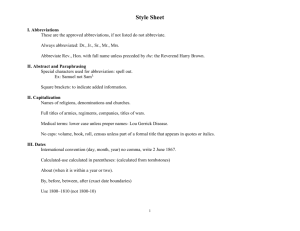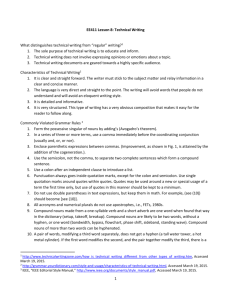Hyphens
advertisement
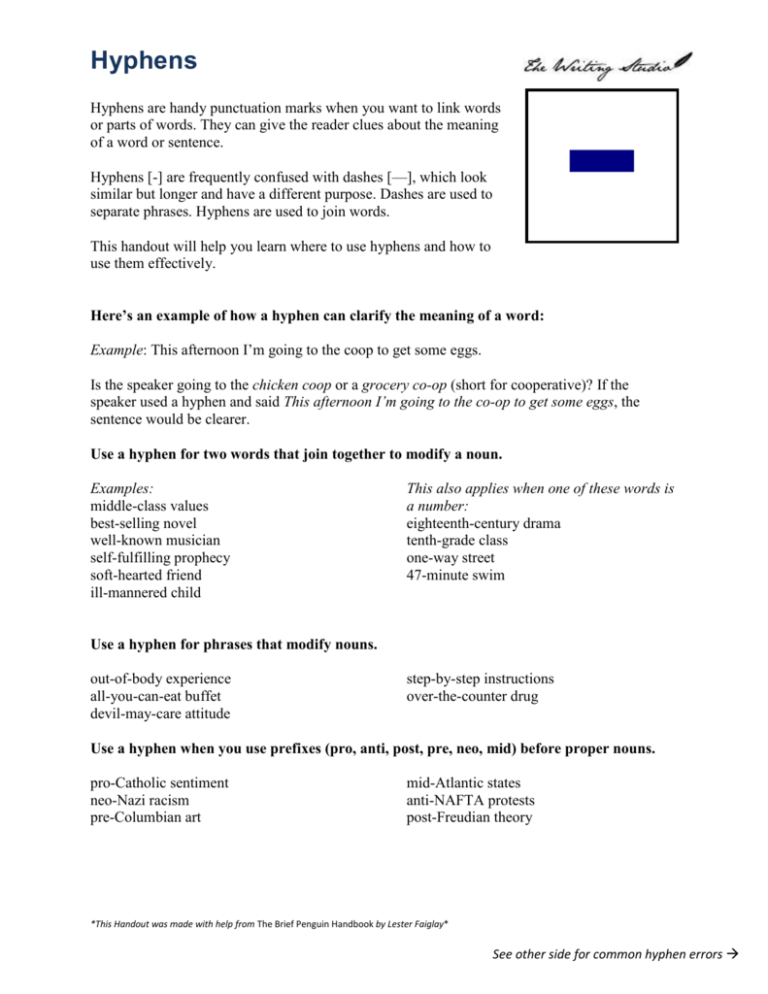
Hyphens Hyphens are handy punctuation marks when you want to link words or parts of words. They can give the reader clues about the meaning of a word or sentence. Hyphens [-] are frequently confused with dashes [—], which look similar but longer and have a different purpose. Dashes are used to separate phrases. Hyphens are used to join words. This handout will help you learn where to use hyphens and how to use them effectively. Here’s an example of how a hyphen can clarify the meaning of a word: Example: This afternoon I’m going to the coop to get some eggs. Is the speaker going to the chicken coop or a grocery co-op (short for cooperative)? If the speaker used a hyphen and said This afternoon I’m going to the co-op to get some eggs, the sentence would be clearer. Use a hyphen for two words that join together to modify a noun. Examples: middle-class values best-selling novel well-known musician self-fulfilling prophecy soft-hearted friend ill-mannered child This also applies when one of these words is a number: eighteenth-century drama tenth-grade class one-way street 47-minute swim Use a hyphen for phrases that modify nouns. out-of-body experience all-you-can-eat buffet devil-may-care attitude step-by-step instructions over-the-counter drug Use a hyphen when you use prefixes (pro, anti, post, pre, neo, mid) before proper nouns. pro-Catholic sentiment neo-Nazi racism pre-Columbian art mid-Atlantic states anti-NAFTA protests post-Freudian theory *This Handout was made with help from The Brief Penguin Handbook by Lester Faiglay* See other side for common hyphen errors Common Hyphen Errors DO NOT use a hyphen for two words that modify a noun, that come after that noun. Examples: The instructor’s approach is student centered. DO NOT use a hyphen for two words that modify a noun, when the first one is very or ends in –ly. Examples: newly recorded data freshly painted bench very cold day very jolly baby DO NOT use a hyphen for chemical terms. Examples: calcium chloride base hyrdrochloric acid solution DO NOT use a hyphen for foreign terms used as adjectives. Examples: a priori decision post hoc fallacy *This Handout was made with help from The Brief Penguin Handbook by Lester Faiglay* See other side for hyphen guidelines
